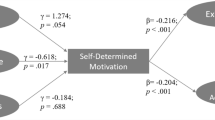Abstract
Although game development is a recent profession, many of its issues have been associated with the straining working conditions experienced by workers to keep themselves in the industry. This requires balancing job demands and job resources, and, in cases of extreme and prevalent job demands, it can elicit burnout as an occupational phenomenon. This study aims to identify burnout and job demand-resources levels among game developers, their relationship, and variation according to social individual/labour characteristics. An online questionnaire collected data from 193 game developers. Regarding burnout, results showed moderate levels of exhaustion and disengagement, while job demands revealed high levels of mental and concentration demands, moderate levels of time, emotional, material, and physical demands. For job resources, we found high levels of autonomy and moderate values of personal development, quality of personal relations, ethical, and social utility of work. Exhaustion is positively correlated with working hours per week and job demands, and negatively with job resources. The same happens with disengagement, except for mental and concentration demands. Time demands explained 27% of exhaustion, and personal development explained 14% of exhaustion and 51% of disengagement. Therefore, game developers face very demanding work conditions, alerting to the need to develop strategies for burnout prevention, and for the adequate manage of job demands using job resources, thus, promoting happier and healthier workplaces.
Access this chapter
Tax calculation will be finalised at checkout
Purchases are for personal use only
Similar content being viewed by others

References
WHO: https://www.who.int/mental_health/evidence/burn-out/en/. Accessed 22 Aug 2020
Santos, P.A., Romeiro, P., Nunes, F., Hollins, P., Riestra, R.: A survey of the video game industry in Portugal. Revista de Ciências da Computação 12, 1–24 (2017)
Macgregor, J.: https://www.pcgamer.com/the-pressure-to-constantly-update-games-ispushing-the-industry-to-a-breaking-point/. Accessed 01 June 2019
Freudenberger, J.: Staff burn-out. J. Soc. Issues 30(1), 159–165 (1974)
Maslach, C., Jackson, S.E.: The measurement of experienced burnout. J. Organ. Behav. 2(2), 99–113 (1981)
Maslach, C., Schaufeli, W.B., Leiter, M.P.: Job burnout. Annu. Rev. Psychol. 52(1), 397–422 (2001)
Demerouti, E., Bakker, A.B.: The job demands–resources model: challenges for future research. J. Indust. Psychol. 37(2), 1–9 (2011)
Maslach, C., Leiter, M.P.: Understanding the burnout experience: recent research and its implications for psychiatry. World Psych. 15, 103–111 (2016)
Demerouti, E., Bakker, A.B., Nachreiner, F., Schaufeli, W.B.: The job demands-resources model of burnout. J. Appl. Psychol. 86(3), 499–512 (2001)
Schaufeli, W.B.: Applying the job demands-resources model: a ‘how to’ guide to measuring and tackling work engagement and burnout. Organ. Dyn. 46, 120–132 (2017)
Colombo, V., Cifre, E.: The importance of recovery of work: a review of where, how and why. Papeles del Psicologo. 33(2), 129–137 (2012)
Meijman, T.F., Mulder, G.: Handbook of Work and Organizational Psychology, 2nd edn. Erlbaum, Hove, UK (1998)
Hockey, G.R.J.: Attention: Selection, Awareness, and Control: A Tribute to Donald Broadbent. Oxford University Press, New York (1993)
Gauche, C., de Beer, L.T., Brink, L.: Exploring demands from the perspective of employees identified as being at risk of burnout. Int. J. Qual. Stud. Health Well-being 12(1), 1361783 (2017). https://doi.org/10.1080/17482631.2017.1361783
Kent, S.L.: The Ultimate History of Video Games: From Pong to Pokémon and Beyond the Story Behind the Craze that Touched Our Lives and Changed the World. Three Rivers Press, New York (2001)
GlobalData. Video games - thematic research (2019)
Newzoo. https://cdn2.hubspot.net/hubfs/700740/Reports/Newzoo_2018_Global_Games_Market_Report_Light.pdf. Accessed 22 Aug 2020
UK Interactive Entertainment Association. https://ukie.org.uk/research. Accessed 22 Aug 2020
Valentine. https://www.gamesindustry.biz/articles/2019-05-13-grand-theft-auto-v-has-sold-110m-copies. Accessed 22 Aug 2020
McGuire, M., Jenkins, O.C.: Creating Games: Mechanics, Content and Technology. Taylor & Francis Group, Boca Raton (2008)
Weststar, J., Kwan, E., Kumar, S.: Developer satisfaction survey 2019.In: International Game Developers Association (2019)
Weststar, J.: Understanding video game developers as an occupational community. Inf. Commun. Soc. 18(10), 1238–1252 (2015)
Ea-spouse. https://ea-spouse.livejournal.com/274.html. Accessed 22 Aug 2020
Edholm, H., Lidström, M., Steghöfer, J., Burden, H.: Crunch time: the reasons and effects of unpaid overtime in the game industry. In: 39th International Conference on Software Engineering, pp. 43–52 (2017)
Peticca-Harris, A., Westsar, J., McKenna, S.: The perils of project-based work: attempting resistance to extreme work practices in video game development. Organization 22(4), 570–587 (2015)
Halbesleben, J.R.B., Demerouti, E.: The construct validity of an alternative measure of burnout: Investigating the English translation of the Oldenburg burnout inventory. Work Stress. 19(3), 208–220 (2005)
Sinval, J., Queirós, C., Pasian, S., Marôco, J.: Transcultural adaptation of the Oldenburg burnout inventory (OLBI) for Brazil and Portugal. Front. Psychol. 10, 1–28 (2019)
Morin, E.M.: Bilan de la recherche sur le sens du travail. Université de Montréal, Montréal (2000)
Gonçalves, S.P., Neves, J., Morin, E.: Looking for the Positive Side of Occupational Health at work. Universitat Jaume-I, Beniccàssim (2009)
Chowdhury, R., Shah, D., Payal, A.R.: Healthy worker effect phenomenon: revisited with emphasis on statistical methods – a review. Indian J. Occup. Environ. Med. 21(1), 2 (2017). https://doi.org/10.4103/ijoem.IJOEM_53_16
Harvey, A., Fisher, S.: “Everyone can make games!” Feminist Media Studies (2014)
EUROFOUND. Burnout in the workplace: A review of data and policy responses in the EU. Publications Office of the European Union, Luxembourg (2018)
Author information
Authors and Affiliations
Corresponding author
Editor information
Editors and Affiliations
Rights and permissions
Copyright information
© 2022 Springer Nature Switzerland AG
About this paper
Cite this paper
Mendes, J., Queirós, C. (2022). It’s Crunch Time: Burnout, Job Demands and Job Resources in Game Developers. In: Barbedo, I., Barroso, B., Legerén, B., Roque, L., Sousa, J.P. (eds) Videogame Sciences and Arts. VJ 2020. Communications in Computer and Information Science, vol 1531. Springer, Cham. https://doi.org/10.1007/978-3-030-95305-8_4
Download citation
DOI: https://doi.org/10.1007/978-3-030-95305-8_4
Published:
Publisher Name: Springer, Cham
Print ISBN: 978-3-030-95304-1
Online ISBN: 978-3-030-95305-8
eBook Packages: Computer ScienceComputer Science (R0)



